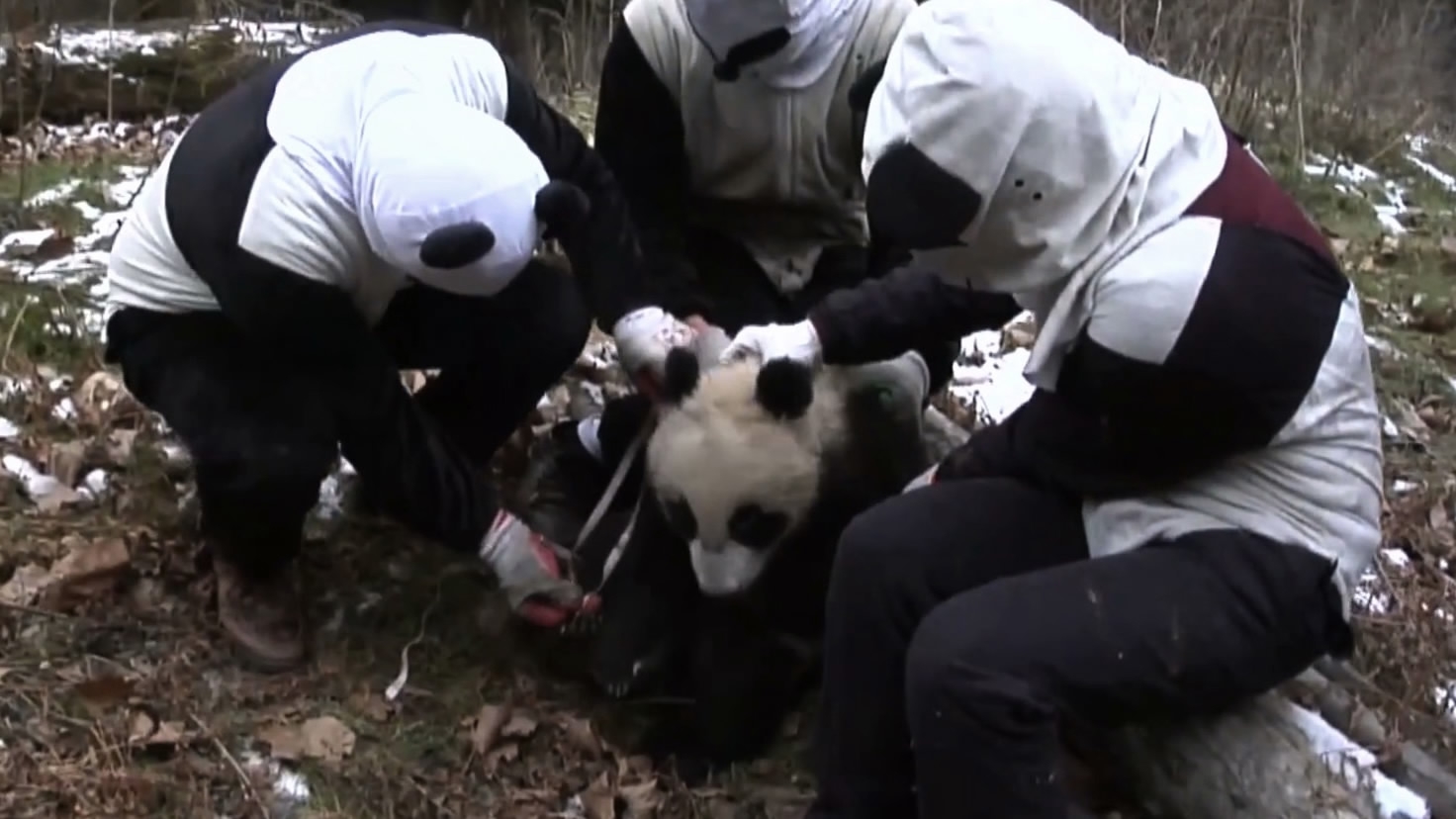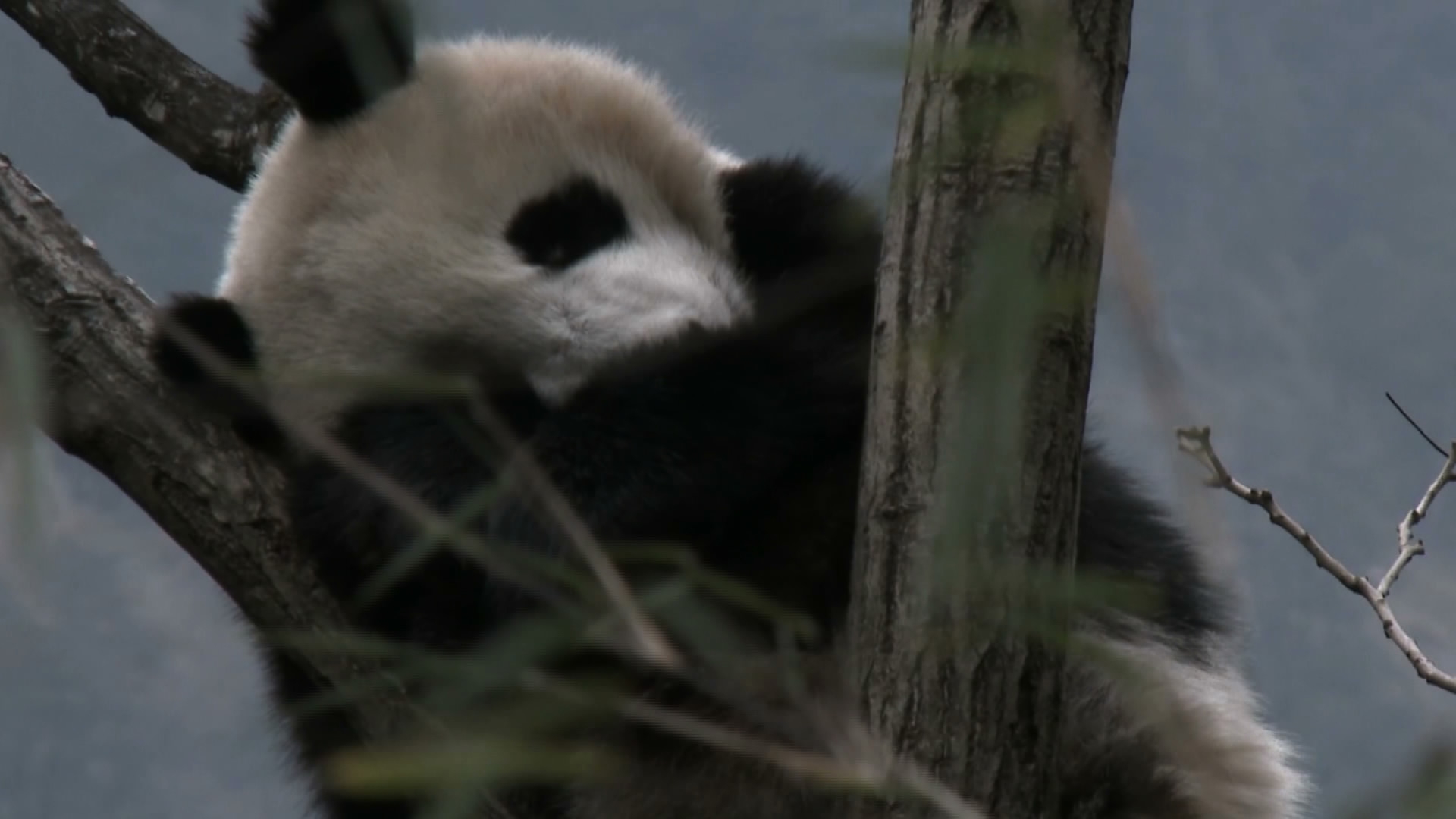
Culture
08:14, 24-Nov-2017
Giant panda cubs released into the wild
By Tao Yuan

Two giant panda cubs have been released into the wild after two years of training, marking another step in China’s panda conservation effort.
Early winter snow frosted the bamboo leaf-covered ground in southwest China’s Liziping Nature Reserve as Baxi and Yingxue, a pair of 2-year-olds, surveyed the environment after being goaded out of their cages.
Then, they ran off, without looking back at a crowd of panda researchers, government officials and journalists unrelentingly pressing their camera shutters. Within seconds, they disappeared into the bamboo forest.
It was a big day for the bears – what's next is now entirely up to them. And they have a grand mission.
“Re-introducing captive-bred animals into the wild is an important means to diversify the species’ gene pool,” said Li Chunliang, vice director of China’s State Forestry Administration.

Captive-bred panda in the wild /CGTN Photo
Captive-bred panda in the wild /CGTN Photo
Baxi, male, and Yingxue, female, have trained for this day for their whole lives. At a mock wild environment in Sichuan’s Wolong National Nature Reserve, they were taught to be independent, and to be wary of their natural enemies, including humans. Keepers wore full panda costumes scented with panda urine so that the young animals don’t get attached to their human caretakers. Eventually, experts believed the pair was ready.
"Baxi and Yingxue are quite active and vigilant," said Wu Daifu who oversees animal training at the China Conservation and Research Center for the Giant Panda. "They are different from pandas in captivity, which are quite attached to humans. On the contrary, as you saw during the release, Baxi and Yingxue would run away from you."
They pair are the eighth and ninth giant pandas released into the wild. Of the seven cubs before them, two were found died. The first one, released in 2006, was most likely the victim of aggression from another male panda.
"That survival rate isn’t bad at all," said Wu, adding that the average survival rate for animal rewilding is under 50 percent.
China’s giant panda conservation effort has been a success. Bases in the country's southwestern panda habitat have bred a captive population hundreds strong. But it’s one thing to keep them behind bars in front of crowds of visitors oohing and aahing at their adorability, and quite another to see them roam freely in their natural habitat, thriving on their own. More cubs are preparing for their independence.
"I have confidence in them," Wu stressed. "I believe they will thrive in the wild, and have their babies."

SITEMAP
Copyright © 2018 CGTN. Beijing ICP prepared NO.16065310-3
Copyright © 2018 CGTN. Beijing ICP prepared NO.16065310-3